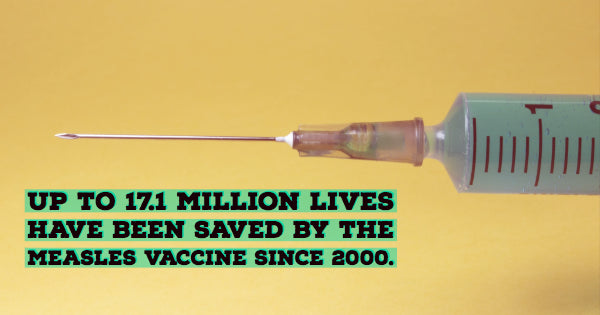Up to 17.1 million lives have been saved by the measles vaccine since 2000, and the number of measles-related deaths has declined by 79% between 2000 and 2014. The disease was believed to be nearly eradicated in the U.S., but the recent anti-vaccination movement has brought the disease back.
How is the anti-vaccination movement bringing back measles?
Measles is a highly contagious virus that can cause brain swelling, hearing loss, and even death if left untreated. A vaccine was introduced for the virus in 1963 and has since prevented numerous deaths.
However, a growing number of parents who believe vaccinations cause developmental disabilities (a belief that health officials have disproven) have been choosing not to vaccinate their kids. Clark County, Washington, is one of the biggest anti-vaccine areas.
Parents who choose not to vaccinate their children put their kids at risk for infection. They're also putting at risk those around them who can't get the vaccine due to medical purposes such as cancer or because they're too young to receive it.
How do vaccinations protect those who can't get vaccinated?
As mentioned above, not everyone can be vaccinated because of medical conditions, pregnancy, or age. However, these individuals can be protected by those who have been vaccinated. This is called herd immunity.
Herd immunity is when a population is protected from a disease after a vaccination has kept the bacteria or virus responsible for the infection from being transmitted. When a person is vaccinated, they can't pass the disease/virus on to another person.
Health officials recommend that anyone over the age of one year be vaccinated for measles if they haven't been already.
Where can I find a medical freezer or pharmaceutical-grade refrigerator?
Vaccines need to be stored properly in order for them to do their job effectively. Vaccines need to be placed in a medical freezer at an ideal temperature of 40F.
It's also necessary to record the temperature of the medical freezer at the start of the workday and to check the temperature whenever the medical freezer is accessed. But before you can store your vaccines, you need a vaccine refrigerator to store them in.
K2 Scientific offers a variety of pharmaceutical-grade refrigerators for vaccines and other necessary pharmaceuticals. To learn more about our lab freezers and vaccine storage refrigerators, contact K2 Scientific today.
